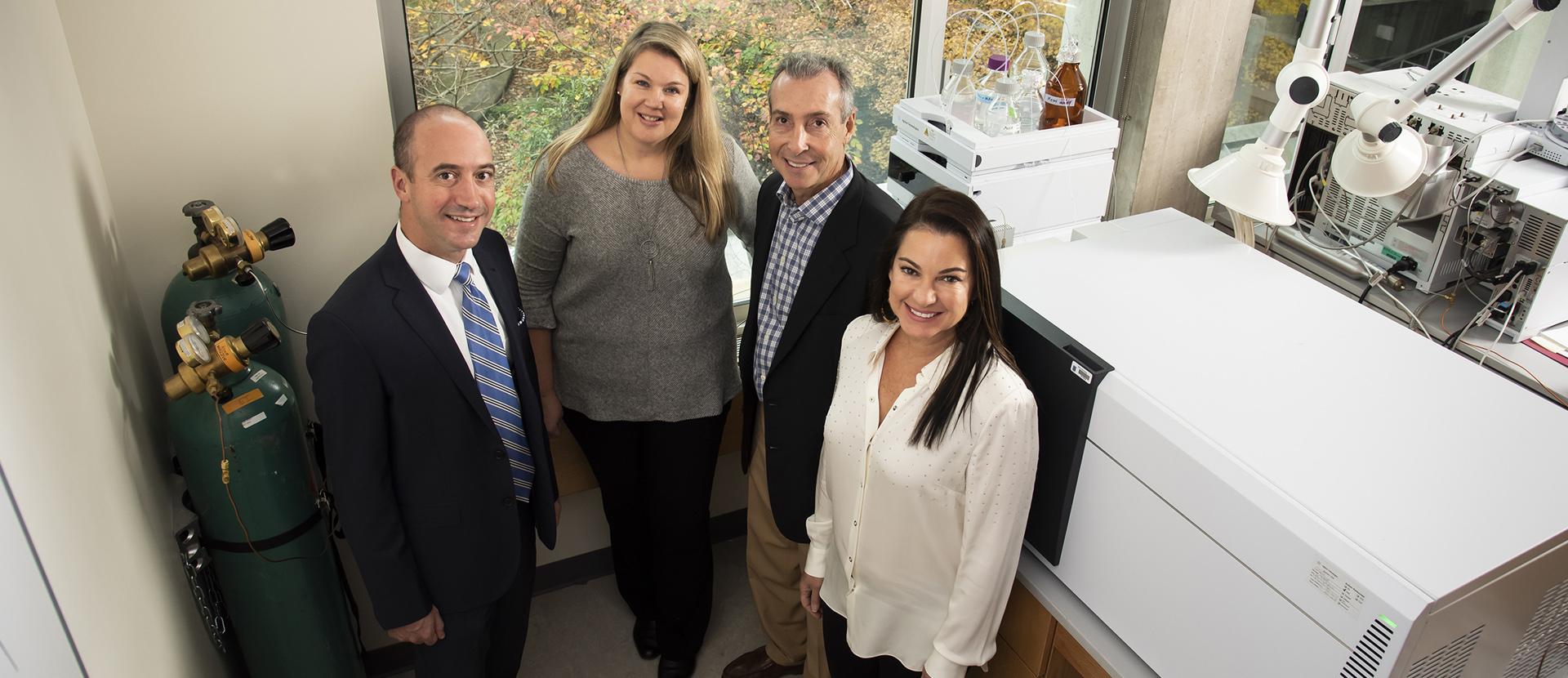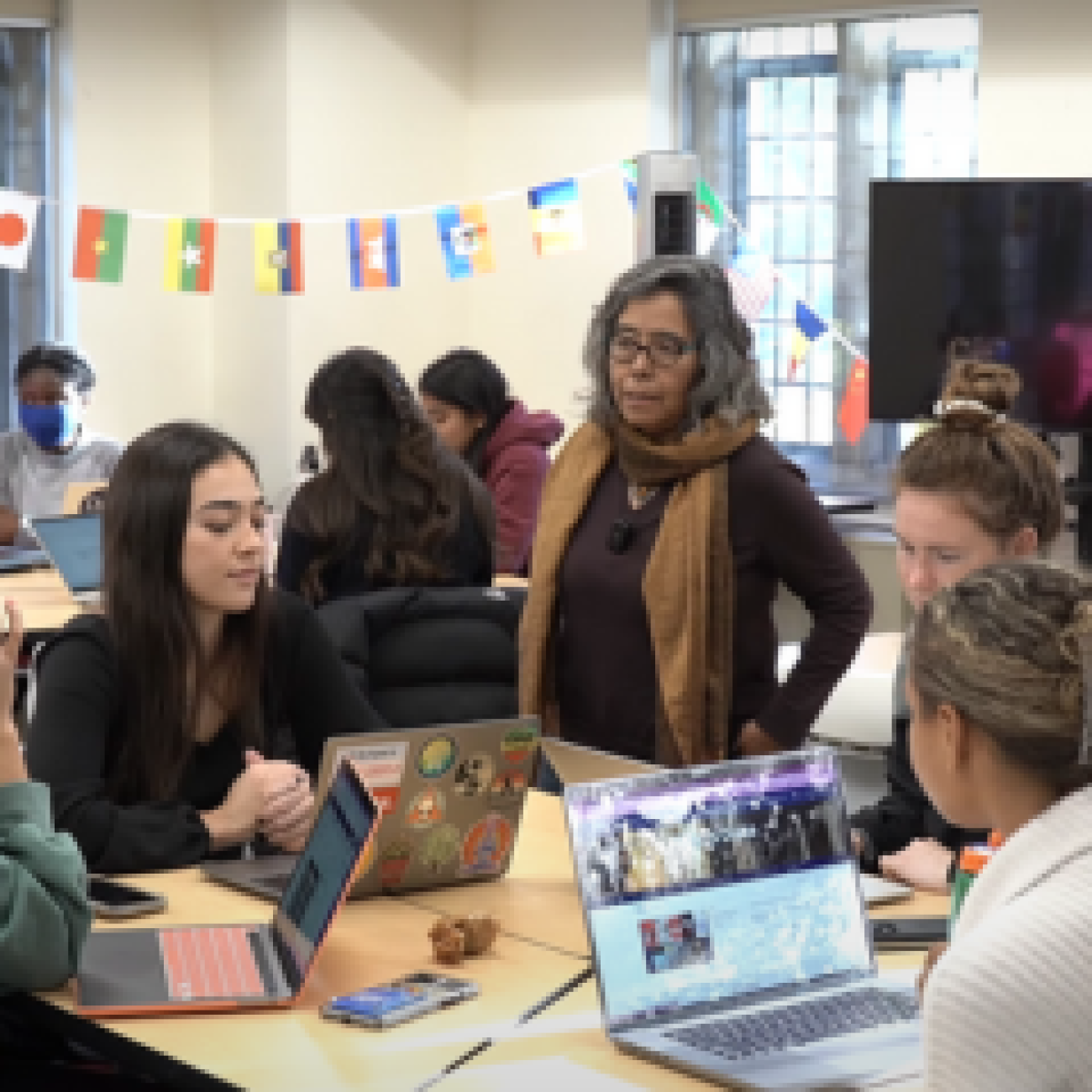Exploring health risks beyond the human genome
Exposomics aims to measure people’s cumulative exposures to environmental contaminants over the course of their life and identify how these combined exposures influence the risk of developing cancer and other diseases.
“Genetics, on its own, has been found to account for only about 10% of all diseases,” said Heather Stapleton, associate professor of environmental chemistry. “The remaining 90% appear to be linked to environmental causes or complex interactions of environmental and genetic factors.”
Our hope is that this lab will advance the public’s understanding of how chemicals in consumer products and the natural environment affect human health.
— Michael Falk
To further work such as Stapleton’s, Michael S. Falk and Annie Falk gave $1 million to establish the Michael and Annie Falk Foundation Environmental Exposomics Laboratory at Nicholas School of the Environment. The gift will help hire highly specialized staff members to perform research and data analyses in support of research by scientists at the Nicholas School, the Duke Cancer Institute, the Pratt School of Engineering, and other schools and labs across campus. It will also fund access to additional resources through Duke Research Computing, support an environmental exposomics symposium at Duke, and fund the development of a new website for disseminating and translating the lab’s research findings.












